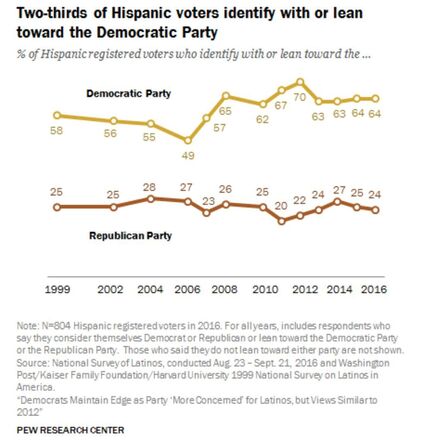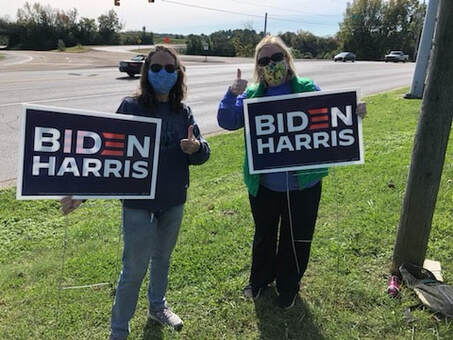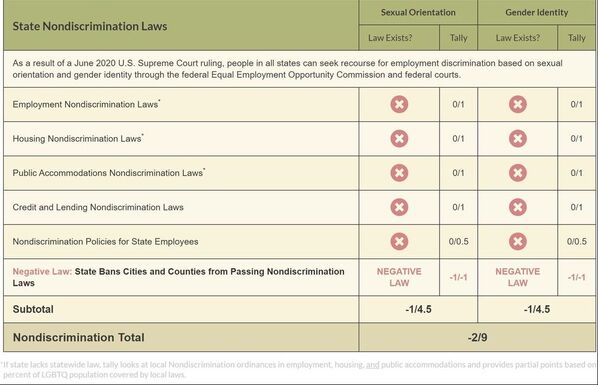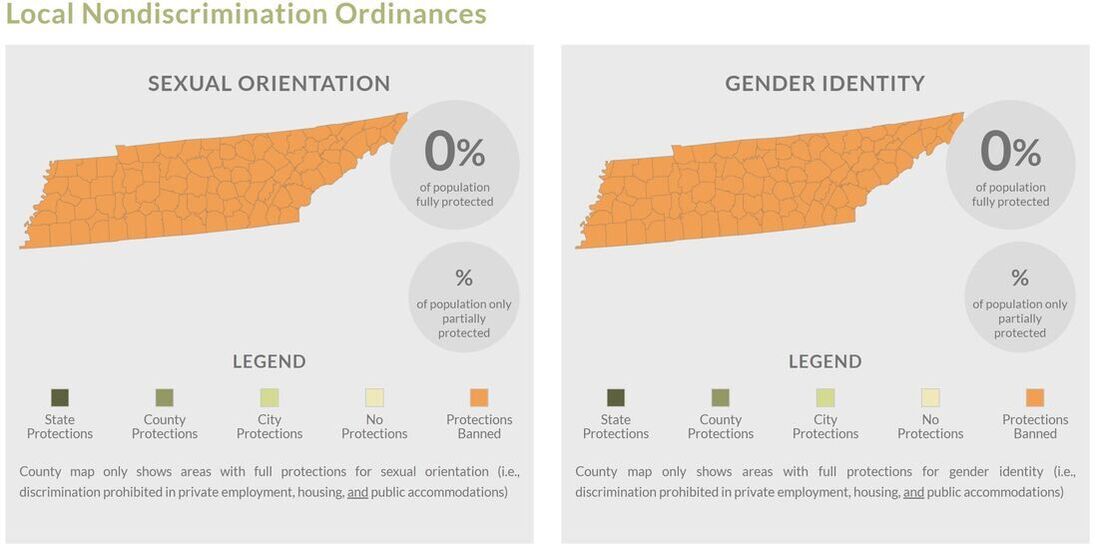 Fuerza Democrats Tennessee is a state political action committee established to identify, organize, educate, and mobilize Latinos across the state and engage them in the political process. On their website, the group offers information, such as if Latino voters are allowed an interpreter to the polls, what to bring when voting, how to become a US Citizen, and more. In May, the organization registered as a political action committee (PAC) with the Tennessee Secretary of State’s office. A PAC pools campaign contributions from members and donates those funds to campaigns for or against candidates, ballot initiatives, or legislation. The organization says by becoming a PAC, they want to ensure that the growing Latino population in the state is reflected at all levels of government. The committee will be led by Sandra Sepulveda, the group’s founding Executive Director. I spoke with board member Luis Mata on why the organization made the decision to become a PAC. He says it began with a phone call, that lead to strategy meetings on how the Latinx community can be represented statewide, and the next thing he knew Fuerza was registering as a political action committee. We're extremely excited for this. And, you know, our ultimate goal is to, you know, center the voices and lives of the Latinx community all across the state. Mata says oftentimes the Latinx community sees a lack of representation and engagement where they live, and with this PAC they want to change that and amplify those voices. He says Fuerza Democrats Tennessee goes into Hispanic neighborhoods and educates them on local candidates running for office, what they advocate for, and how this could impact the community. Mata says the group advocates for themselves and all marginalized communities, such as the Black or LGBTQI community. He believes Fuerza is creating a feeling of space, that has been lacking in Tennessee, and filling it with individuals who are directly impacted. He says the power is within themselves, and being the voice is how their mission will be accomplished. President & COO of Chattanooga company Co.Starters, Jose Alfaro, supports Fuerza’s decision. He believes if you don't have someone representing you, you're not getting your voice heard in this county. Alfaro says if community members explain that politics is not just policy, but that we as a community are here to help, form relationships, and showcase how amazing the Latino community is, they’ll want to participate in the growth of the city and the state. Fuerza Democrats do a lot of work with undocumented people, who cannot vote, and are being left out of the conversation. Luis Mata says while the right to vote is an essential tool, it is also equally as important to speak with those who can’t and show them what they can do to get others to vote, and spread the message of how that vote affects the Hispanic community. According to Pew Research Center, only half of the country’s 60 million Hispanics are eligible to vote, which is the smallest share of any racial or ethnic group. PEW says many Hispanics in the United States are under 18 years old, and 11.3 million are non-citizen adults. The Research Center also says two in three eligible Latino voters live in just five states. California alone holds about a quarter of the nation’s Latino electorate, with 7.9 million Latino eligible voters. Texas is second with 5.6 million, followed by Florida, New York, and Arizona. In 2020, Former President Trump did not win most of the Latino vote in any state, however, he came close in Florida, where the Cuban American vote was decisive, according to AS/COA. Latino voters’ strongest showings for the Republican presidential candidate was in 2004 and 1984, and for the Democratic one in 1996 and 2012. Research also shows Latino voter’s showings for Democrats in 2020, was 66%, Republicans were 32%. For a long time, the Hispanic population voted Republican, but according to PEW in 2018, for the midterm elections, three out of four Latino voters supported a Democratic candidate. Hamilton County Democratic Party Chairman Rodney Strong says many Hispanic voters are more conservative, because of their religious background or national origin, however this seems to be changing. In Hamilton County, based on the latest Census, 6% of residents are Hispanic, that's more than 21 thousand people. In 2018 that number was 5.86%, which means the Latino community is growing. Given these statistics, I asked Chairman Rodney Strong what he thinks seeing representation in leadership will mean to the Hispanic community. Strong says having representation will help HCDP and others do a better job in reaching the Latino community. He says sometimes there is a failure to understand leaders and residents have to reach out to others to understand their point of view and address their needs and concerns. Strong says they reach to local organizations in the county to reach Hispanic voters. As a group, he says the HCDP tries to get residents out to the ballot box by sending information in the mail, by phone, and by hosting gatherings. He says they are looking to have their first picnic on June 10th, it's their first since the pandemic began. As reaching voters has been a struggle because of COVID-19, I asked Strong if it was hard to elect Democrats in Hamilton County since we are considered a red community. He says the democratic vote is here, it’s just getting people out to the polls on election day. He says in 2008 President Barack Obama carried Hamilton County. This past year, 53.9% voted for President Trump, and 44.2% voted for current President Joe Biden, which is only a 9.7 percent difference. It’s also one of the closest margins in the state. Strong says while the blue vote is here, the rural areas like Bledsoe, Bradley, and Grundy County are hard to flip, and each party gained voter participation in the recent election. Chairman Strong says it will take some time for Tennessee to turn blue, just as Georgia did, but right now they are focusing on a local grassroots level to get the word out about these candidates and get voters to the polls during election season. The Hamilton County Democratic Party Headquarters are open on Monday and Wednesday from 1 PM to 4:30 PM. You can also reach them by phone (423) 508-9817, or by email (HCDP, Chairman Strong). If you would like to become a volunteer, click here to fill out a form. More for information on the organization or to donate you can head to their website by clicking here. If you would like to get involved with Fuerza Democrats Tennessee you can follow them on social media, spread the word about the committee, and donate to the committee through their ActBlue link by clicking here. With donations, they can support candidates. They are also planning their calendar for events, so be on the lookout for that.
0 Comments
In Tennessee Governor Bill Lee has signed two of five anti-transgender bills into law in 2021, that have made their way through the Tennessee legislature. On March 26th, the governor signed House Bill 228 into law. The bill bans a transgender athlete from playing in a sport unless it matches their birth certificate.
One month before signing the bill, the Governor was quoted saying, allowing transgender girls to play on female sports teams would "destroy women's sports" the governor said it would "ruin the opportunity for girls to earn scholarships." Lee says the legislation was in response to President Biden's executive order which protects from discrimination based on sexual orientation.
On May 4th, Senate Bill 1229 was also signed into law by Governor Lee. This bill would require a school district to notify parents before “providing a sexual orientation curriculum or gender identity curriculum” in any kind of lesson plan, including but not limited to education on sexuality. The bill says school districts would have 30 days to tell parents or guardians of upcoming instruction on sexual orientation or gender identity. Families could then opt their children out of the learning without being penalized.
If students are going to grow up in a world with LGBTQ people, which they are, it is putting them in a pretend world, that they can opt out of dealing with LGBTQ people
I spoke with Chris Sanders, who is the executive director of the Tennessee Equality Project. He believes bills such as these, are "very stigmatizing" and are damaging to the LGBTQ+ community, particularly transgender youth. He says, trans young people, are being "targeted" by these bills, whether it's healthcare, sports, or bathrooms. He says it is damaging to their health and well-being.
This is the is a ridiculous burden on schools for a discriminatory bill.
The Tennessee legislature has also passed three other bills, which are either on Governor Lee's desk, or making their way to his desk.
As of this article posting, the governor has not yet signed or vetoed any of the three bills. (Update: 5/18/21: All three of these bills have now been signed by Governor Bill Lee) Chris Sanders says House Bill 1182 would create dangerous scenarios for transgender people and could also lead to targeting of trans inclusive businesses. He says it is disheartening to see legislators spending time on a bill like this, that he says no one asked for.
Sanders and I also spoke about how the Tennessee Equality Project helps those in the LGBTQ+ community. A big part of their work is monitoring legislation affecting the community and coordinating the fight against it. Sanders says they have done over 33 email campaigns on the bills as they moved through the legislature this session. They have also held five phone banks, and helped more than 50 people meet with legislators and representatives in their district. The project also coordinates with other organizations like the ACLU, the Human Rights Campaign, Freedom for all Americans, and more. Sanders says the groups work together with a unified voice to fight these bills.
Tennessee Equality Project also focuses on mental health. Their Tennessee Counseling Unconditionally program is in response to a law that was passed a few years ago, The law says counselors in Tennessee could opt out of serving people, based on their personal views. The project has a digital map on its website that will show people where they can find affirming counselors. According to the Movement Advancement Project (MAP), 3.5% of adults in Tennessee identify as LGBTQ, 223,000 of those 23 and older are LGBTQ. So, how do these laws affect those in your community and around the state? MAP shows the state of Tennessee ranks low when it comes to nondiscrimination laws. The state does not have employment, housing, or public accommodations nondiscrimination laws. The project says because of a June 2020 U.S. Supreme Court ruling, people in all states can seek recourse for employment discrimination based on sexual orientation and gender identity through the federal Equal Employment Opportunity Commission and federal courts.
Here in Hamilton County/Chattanooga, we do not have full protections for sexual orientation or gender identity. However, this is also the case for the entire state.
So, what can Tennessee do better to protect the rights of the LGBTQ plus community? According to Sanders, the state could adopt protections similar to what's in the Federal Equality Act that is going through Congress right now. He also believes schools, could be more accepting of gender sexuality alliances and do more work on bullying in schools.
I requested an interview with LGBTQ+ organizations in Chattanooga, but have not received a response back for this article posting. If you would like to speak with someone with the Tennessee Equality Project click here. For more information for local organizations such as Chattanooga Pride or the Nooga Diversity Center, their websites are linked. |
AuthorMy name is Jess and I love telling other peoples stories and bringing awareness to the community. Archives
June 2024
Categories |






 RSS Feed
RSS Feed